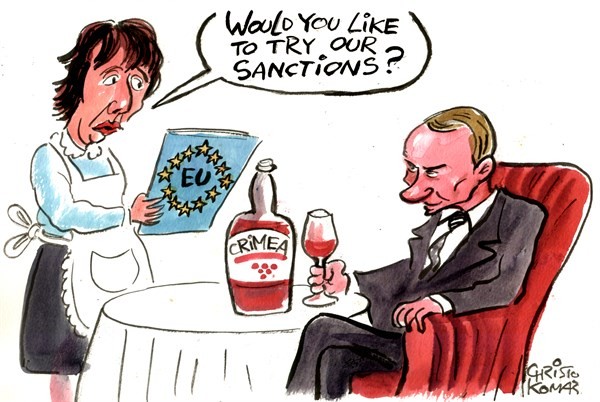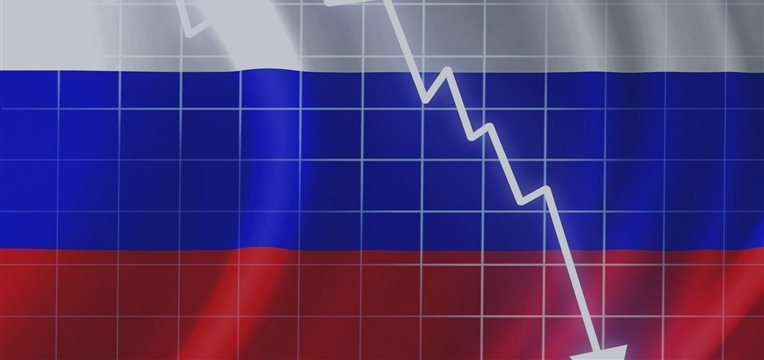New Western sanctions on Russia shook world markets on Thursday, sending Moscow stocks and the ruble falling and lifting traditional safe-haven currencies and bonds.
The new U.S. sanctions announced late on Wednesday effectively shut off longer-term dollar funding for companies close to President Vladimir Putin. The EU also expanded its punishments for certain firms and said it would ask two of its development banks to cease lending in Russia. The Japanese yen, Swiss franc, gold and German government bonds were all higher as the selling of riskier assets accelerated.
Moscow's MICEX stock market dropped 2.7 percent in morning deals, its dollar-traded cousin, the RTS index, fell 4.4 percent and the ruble dropped more than 1 percent against both the dollar and the euro.
Safe-haven assets were given a broad lift, with concerns now that Russia - which provides much of Europe's gas - could hit back with retaliatory measures.
As some mixed earnings and Wednesday's gains - the biggest in three months - bred caution among investors, the pan-European FTSEurofirst 300 extended early falls to be down 0.5 percent by 10:30 GMT.
Being led by Chinese shares, Asian
equities had dipped overnight as well. That came
despite a fresh record high for Wall Street's Dow Jones Industrial
index. Mid-year earnings
are now in full swing. Later in the day internet giant Google reports
its results, topping a heavy slate of big hitters which also includes
Morgan Stanley.
"U.S.
earnings have been pretty good so far," said IG Index strategist
Alastair McCaig. "It's early doors, but at the moment the ratio is
seven-to-one beating expectations." 
In the currency market, the Russia tensions helped the safe-haven yen inch up to 101.50 yen to the dollar. It also hit a five-month high against the euro as the recent downward trend in the euro zone's shared currency continued.
"There seems to be a bit more of a safe-haven bid for the yen here because of what is going on with Russia," said Jane Foley, a foreign exchange strategist at Rabobank in London.
"Remember earlier in the week we also had (Federal Reserve chief) Janet Yellen warning about some stocks being a bit overvalued... so there is anxiety not too far below the surface about some asset prices."
Data suggesting a shaky start for Germany in the new quarter and wariness about banking problems in Portugal have hobbled the euro this week. Newly revised euro zone June inflation data also bolstered the case for record-low ECB interest rates.
Inflation
remained at 0.5 percent, year-on-year figures on Thursday showed, deep
in what ECB chief Mario Draghi has termed the sub-1 percent "danger
zone". By contrast,
Britain is expected to raise rates later this year. Consequently, the
euro hovered near the 78.88 pence it touched on Wednesday, a low not
seen since September 2012.
Commodities markets appeared less directly impacted by the concerns, though the Russia/West tensions were droning in the background. U.S. crude oil extended gains after rising more than $1 the previous day, after government data showed U.S. stockpiles dropped last week. U.S. crude was up 0.25 percent at $101.45 a barrel with Brent fetching 107.66.
Aluminum held steady after touching a 16-month high in light of upbeat data from top consumer China, while Shanghai copper fell to its lowest in a fortnight on worries about a possible bond default in China's construction sector.
Gold
ticked higher to trade above $1,302 an ounce, though it remained near a
four-week low as investors weighed the possibility U.S. interest rates
would rise sooner than expected. Gold
has been under pressure since tensions in Iraq have calmed, and Yellen
said on Tuesday the U.S. central bank could raise rates earlier or
faster if hiring and wages take off in an unexpected way.



